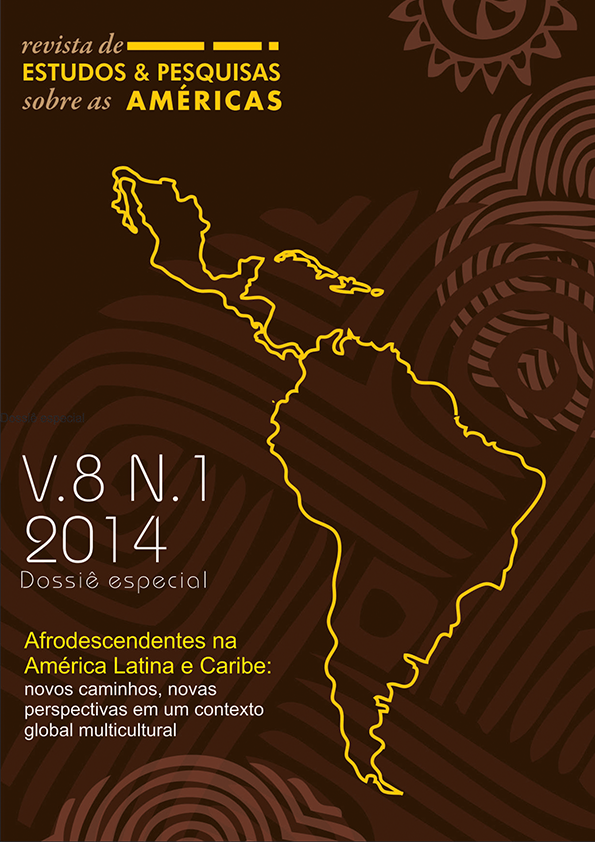Os afro-cubanos, protagonistas silenciados da história cubana
Abstract
Por que desde José Martí até a revolução de 1959, a história oficial cubana silenciou sobre o papel extraordinário dos afro-cubanos nas lutas contra a escravidão, pela independência e pela igualdade republicana? Este artigo responde a essa pergunta analisando os movimentos de escravos e livres de cor no século XIX, a liderança de Antonio Maceo e dos combatentes afro-cubanos nas guerras da independência e a formação em 1908 do Partido Independiente de Color, primeiro partido negro das Américas, até o aniquilamento do partido pelo Exército de Cuba em um massacre racista em 1912. O artigo também mostra como, desde 1959, a Revolução confirma a negação do protagonismo histórico dos afro-cubanos e evita todo debate sobre o racismo no país.
Palavras chaves: Cuba, Diáspora africana, história, discriminação racial, política racial.
---
Cubano-africano, los protagonistas silenciados de la historia cubana
Por qué, desde José Martí hasta la revolución de 1959, la historia oficial cubana ha tenido bajo silencio el papel extraordinario de los Afro-cubanos en las luchas contra la esclavización, por la independencia y por la igualdad republicana? Este articulo responde a esta pregunta examinando los movimientos de esclavos y de libres de color en el siglo XIX, el liderazgo de Antonio Maceo y de los combatientes afrocubanos en las guerras de independencia y la formación en 1908 del Partido Independiente de Color, primer partido negro de las Américas, hasta el aniquilamiento del partido por el Ejercito de Cuba en una masacre racista en 1912. El articulo muestra como desde 1959 la Revolución confirma la negación del protagonismo histórico de los afrocubanos y ha evitado todo debate sobre el racismo en Cuba.
Palabras clave: Cuba””Diáspora africana””Historia””Discriminación racial””Política racial
---
The african-Cuban, the silenced heros of Cuban history
From José Martí up to the 1959 revolution, why has the Cuban official history remained silent on the extraordinary role of african-Cubans in the fight against slavery, for independence and for republican equality? This article answers this question by analyzing the movements of slaves and free men of color in the nineteenth century, the leadership of Antonio Maceo and african-Cuban combatants in the wars of independence and the formation, in 1908, of the Partido Independiente Color, the first black party of the Americas until its annihilation by the Cuban Army in a racist massacre in 1912. This article also shows how, since 1959, the Revolution continues to deny the historical role of the african-Cuban and avoids any debate about racism in the country.
Key Words: Cuba, African Diaspora, history, racial discrimination, racial politics.
Downloads
Published
Issue
Section
License
The published material is the property of the Journal, and may be reproduced in whole or in part with indication of the source.
Copyright: Authors will be responsible for obtaining the copyright of the material used. Authors who publish in this journal agree to the following terms:
a)Authors retain the copyright and grant the journal the right of first publication, with the work simultaneously licensed under
the Creative Commons Attribution License which allows the sharing of work with acknowledgment of authorship and initial publication in this journal.
b) Authors are authorized to take additional contracts separately, for non-exclusive distribution of the version of the work published in this journal (eg, publish in institutional repository or as a book chapter), with acknowledgment of authorship and initial publication in this journal.
c) Authors are allowed and encouraged to publish and distribute their work online (eg in institutional repositories or on their personal page) at any point before or during the editorial process, as this can generate productive changes as well as increase the impact and the citation of the published work (See The Effect of Free Access).
















